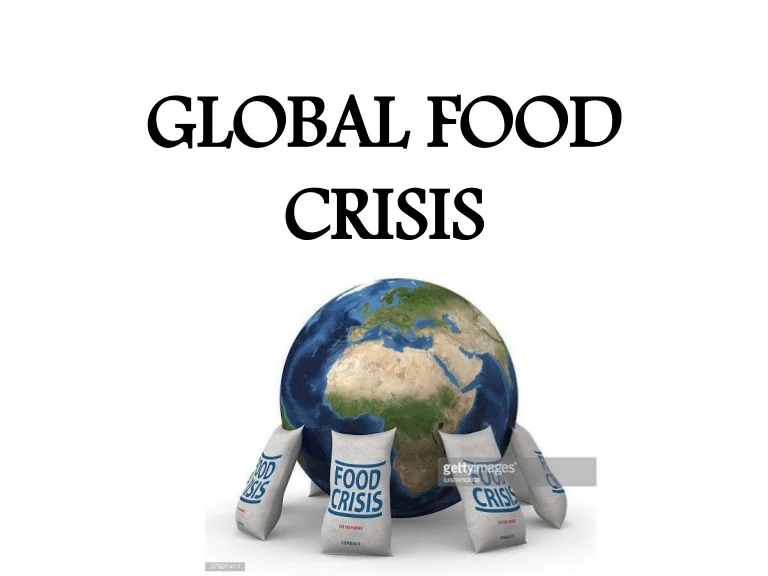By Abdulla Shahid & Gabriel Ferrero de Loma-Osorio
As parents and global citizens, we are very worried about the cost-of-living crisis that the world is facing – the worst in over a generation. The interlinked shocks of the COVID-19 pandemic, climate change and conflicts have thrown the global food, agricultural, financial and energy systems and markets into turmoil.
The ongoing war in Ukraine has added fuel to the already precarious poverty, hunger and malnutrition situation. Besides its tragic humanitarian toll, the war is extending human suffering to all corners of the world through widespread disruptions to the planting, harvesting, transport, and export of major agricultural commodities from the Black Sea region.
The war has also disrupted prices of and access to inputs like fuels and fertilisers. And in this context, we welcome the grain trade deal which offers a lifeline to millions.
Even before the war, hunger and malnutrition were on the rise globally, with an unacceptable 823 million people going hungry in 2021 according to the recent edition of the State of Food Security and Nutrition in the World report by five United Nations agencies, including FAO, IFAD, UNICEF, WFP and WHO. T
These are not mere statistics but real people around the world, from Cairo to Caracas, Dhaka to Donetsk, who are going to bed hungry.
While everyone is squeezed by food price inflation, the poor are the hardest hit, especially in developing countries, where food accounts for half of a typical family’s budget. They are finding it more and more difficult to afford the food needed to nourish their families, and are being forced to reduce food intake, sell their productive assets, or take their children out of school.
As a result, we are seeing years of progress in reducing hunger and poverty reversed, undermining efforts to achieve the Sustainable Development Goals (SDGs) by 2030 while exacerbating inequalities. The World Bank warns that the war in Ukraine is likely to plunge up to 95 million people into extreme poverty, making 2022 the second-worst year ever for poverty alleviation, behind only 2020.
We are glad to note that representatives from more than 100 World Trade Organization member countries have recently taken action to step up their efforts to facilitate trade in food and agricultural products and reaffirmed the importance of refraining from export restrictions.
Working together in the spirit of multilateralism
In challenging circumstances like this, we are all called to come together, united in common responsibility, to address and solve the problem. As the UN secretary-general says: “It takes a world to fix the world.” For us, inaction is not an option.
We call on the international community to urgently support affected people, communities and countries through coordinated action. We welcome and laud several initiatives that have been launched over the past months by governments, institutions and political fora. To succeed, all of us must work together to ensure our actions to address the crisis converge. Millions of lives are at stake and the world’s most vulnerable do not have the luxury of time for duplication or wastage of efforts.
Priority policy responses
Thankfully, we know what we need to do, together, to raise our ambition and deliver concrete actions.
First, stepping up humanitarian response for those already in need. However, addressing this crisis and the vicious cycles it creates calls for an approach that looks at the emergency today with our focus firmly fixed on strengthening livelihoods against future shocks.
Second, urgent stabilisation of markets, debt and commodity prices to immediately restore the availability, accessibility and affordability of food to enable all people everywhere to realise their right to food. We urge countries to continue releasing strategic food stockpiles and inputs into markets, minimise hoarding and other speculative behaviour, and avoid unnecessary trade restrictions.
Third, encourage increased local production by family farmers, small-scale food producers, small or medium-sized enterprises (SMEs) and cooperatives, as well as increased consumption of diverse food varieties; diversify sources of imported foods; and reduce food loss and food waste.
Fourth, restore fertiliser availability ensuring sustained and affordable access by smallholders and family farmers. This should go hand-in-hand with transformation to sustainable and inclusive production as promoted by the 2021 UN Food Systems Summit, including a commitment to increased efficiency in the use of energy and fertilisers, unleashing the potential of agroecology and other innovative approaches to sustainable agriculture.
Fifth, reinforce social protection systems needed to prevent vulnerable communities from sliding into poverty and furthering malnutrition. Examples of such measures include the time-proven school meals programme to address the impact of this crisis on children’s malnutrition, or cash transfer programmes to boost the purchasing power of poor households.
Sixth and last, countries need financial resources and the fiscal space to support strong national responses to the crisis. We need to fund existing international financing mechanisms; with the IMF and the international financial institutions (IFIs) playing an essential role. We urge countries that were proposing cuts to Official Development Assistance (ODA) commitments to reconsider their decisions and instead respect the target to direct 0.7 percent of their national incomes to ODA.
Accelerators
Lessons from the 2007-08 food crisis, as well as from the COVID-19 pandemic more recently, show that meaningful and principled policy response should support country-led coping strategies that involve all of society: from farmers to consumers, civil society, and businesses, especially those most affected by the food crisis.
Gladly, we have seen many countries around the world, including those that are affected most, put in place a raft of solutions to cushion their people against the crisis. These solutions should be encouraged and supported. The UN secretary-general’s Global Crisis Response Group is providing joint analysis and policy recommendations from the whole of the UN System.
Source: Al Jazeera

 Join Daily Trust WhatsApp Community For Quick Access To News and Happenings Around You.
Join Daily Trust WhatsApp Community For Quick Access To News and Happenings Around You.

